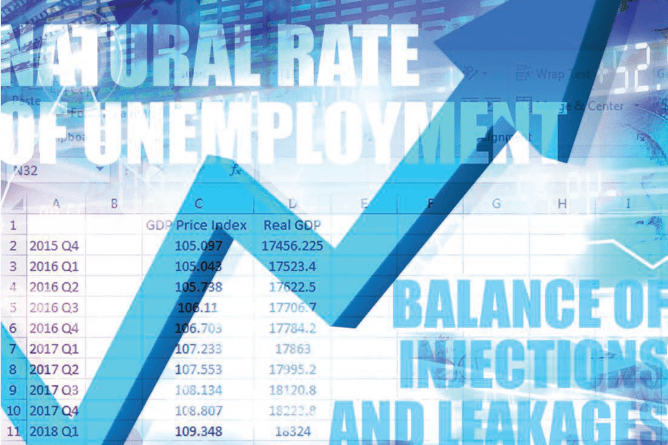By Laura Braddick
After retiring from a career as an economist, Marc Rubin, Ph.D., decided to teach macroeconomics as an adjunct professor at TU because he didn’t want to end up—in his words—a “couch potato.”“As I got into teaching the course, which at first was basically a plain vanilla course that you could get anywhere in the country, I said, ‘I can do more than this.’ If you have something to contribute that you know will make a difference, then you want to step up.”
Rubin made it his mission to make his macroeconomics course meaningful and impactful to all students by helping them become better informed citizens who can think critically.
“You can be effective in whatever capacity if asked to weigh in on issues because you know what you’re talking about.”
“Taking macroeconomics is more than just checking off a box for requirements needed to graduate,” he said. “Not everyone is going to be a Ph.D. economist. But through interactive learning in macroeconomics, my students can pose the basic questions and apply proven theories. As a result, they can become better educated consumers of information. Moreover, they can critically evaluate statements, read or seen in the media, or policies/ideas publicly presented by elected officials.”
While teaching, Rubin realized textbooks explained theories, but didn’t necessarily offer relevant or up-to-date examples on which to test or apply those theories.
“In most textbooks, there are no exercises that are comprehensive and that really expose students to current data and what is presently happening in the economy,” he said.
Having worked several years for various government agencies, including the U.S. Census Bureau, Rubin knew there was an enormous amount of data publicly available. So Rubin created Microsoft Excel macroeconomic theory templates with built-in formulas to capture and manipulate these data sets. In his classes, he assigns questions about current economic trends and policy positions. Students use the spreadsheets to crunch the data and evaluate each question.
“These are qualitative estimates that allow you to come away from the course, read any article in the popular press and be able to evaluate it intelligently,” Rubin said.
Rubin’s innovative assignments will reach even more students this year. He recently completed a book, coupled with his spreadsheet templates, which are now offered by the publisher Kendall Hunt. These materials are viewed as a supplement to the most popular macroeconomics textbooks.
Rubin says stimulating minds and getting students to ask thoughtful questions are his favorite parts of teaching.
“This method gives you knowledge that other people don’t have,” he said. “And you can be effective in whatever capacity if asked to weigh in on issues because you know what you’re talking about.”
 Marc Rubin, Ph.D., is an adjunct professor in the Department of Economics.
Marc Rubin, Ph.D., is an adjunct professor in the Department of Economics.


